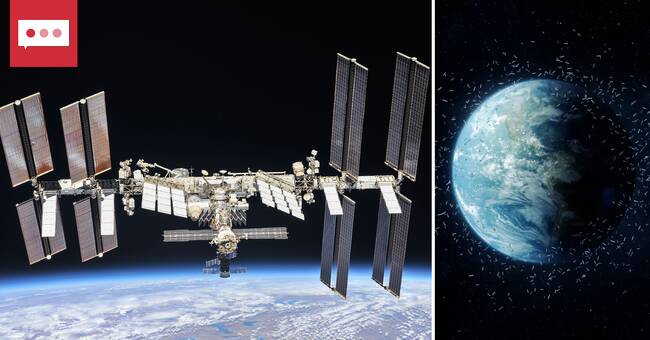The United States is now sharply critical of Russia after conducting a test of its anti-satellite weapon.
It was on Monday that Russia blew up one of its own satellites.
The wreckage has fallen into orbit around the earth - the same orbit as the International Space Station travels.
According to CNN, the threat of a collision with the wreckage forced the seven astronauts on board to seek refuge in a kind of lifeboat, spacecraft that can leave the station and land on Earth.
No collision occurred, but Nasa chief Bill Nelson estimates that the risk has now been four times as high for astronauts to be hit by space junk, as the space station passes near or through the junk cloud every ninety minutes.
Satellite services threatened
In addition, satellites that provide the earth's population with telephony and broadband services, weather forecasts and GPS systems are at risk of being hit by fragments from the explosion.
According to US Secretary of State Antony Blinken, Russia's actions are proof that the country is stepping up its armaments of space, despite being said to be striving to do the opposite.
"The long-lasting wreckage created by this dangerous and irresponsible test will now threaten satellites and other space objects that are vital to the security of all nations, as well as economic and scientific interests for decades to come," Blinken said in a statement on Monday.
SpaceX Crew Dragon capsules act as the space station's lifeboats.
In these, the astronauts had to seek protection.
Photo: AP / Nasa
Russia's Defense Minister Sergei Shoigu, however, says the rubble "does not pose a threat to space activities", reports the BBC.
May complicate space travel
As more and more satellites are launched into space, there is a growing fear among scientists that space debris will spread unmanageably.
In addition, when countries launch satellites, it can generate hundreds of thousands of new fragments.
Something that hinders the problem, according to Jan-Erik Wahlund, who is chairman of space sciences at the Royal Academy of Sciences and associate professor at the Institute of Space Physics.
- I think it's crazy.
It must be stopped now, he says.
In the worst case, the space debris can settle like a blanket over the earth and complicate rocket launches or knock out socially important satellites on which we have become completely dependent.
Jan-Erik Wahlund therefore wants to see international agreements and laws that regulate how nations may act in space.
- There are no rules up there, it is pure wild west, he says.
In the clip above, Jan-Erik Wahlund presents some solutions to the problem of space debris.

